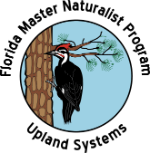
Florida Master Naturalist Program
Modules
-
Coastal Systems Course
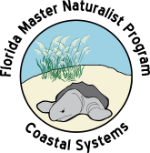
This Course provides instruction on the general ecology, habitats, vegetation types, wildlife, and conservation issues of Coastal Systems in Florida - Coastal Uplands, Estuarine, and the various Nearshore Marine Environments.
-
Freshwater Systems Course
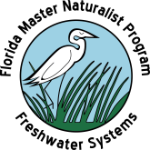
This Course provides instruction on the general ecology, habitats, vegetation types, wildlife, and conservation issues of Freshwater Systems in Florida - Marshes, Swamps, and Permanent Wetlands (Lakes, Rivers, Etc.).
-
Uplands Systems Course
This Course provides instruction on the general ecology, habitats, vegetation types, wildlife, and conservation issues of Upland Systems in Florida - Hardwood Forests, Pinelands, Scrub, Dry Prairie, Rangelands and more.
-
Conservation Science Course
This course is designed to educate people in the concepts, language, and science related to conservation needs, planning, and action. People that complete this course will better understand the complexities of conservation, which will make them both better educators and participants in local conservation efforts. This course will cover concepts such as species diversity, measuring biodiversity, the processes that generate and maintain biodiversity, types of ecosystem services, ecological processes, habitat fragmentation, effects of human activities on ecosystems, the history of conservation in North America, and strategies for conservation planning.
-
Environmental Interpretation Course
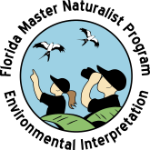
This course is designed to make participants better environmental interpreters and educators, so that others may learn about Florida’s natural history and conservation issues. This course will cover concepts such as the fundamentals of interpretation, key elements of an effective interpretive program, how to create themes, sub-messages and transitions, group management, addressing diverse audience needs, developing interpretive displays and practicing interpretive techniques.
-
Habitat Evaluation Course
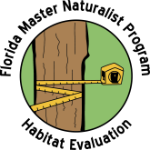
This course is designed to provide training in principles and commonly used techniques for evaluating wildlife habitat. People that complete this course will better understand the reasons for evaluating wildlife habitat at different scales and the methodologies used to do so. This course includes both classroom instruction and hands-on experience and will better equip students to participate in data collection for habitat evaluation projects. This course will cover large-scale habitat evaluation, local-scale habitat evaluation, and water quality monitoring.
-
Wildlife Monitoring Course
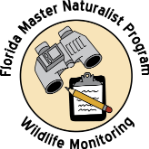
This course is designed to provide training in principles and commonly used techniques for surveying and monitoring wildlife. People that complete this course will better understand the reasons for monitoring wildlife and the methodologies used to do so. This course includes both classroom instruction and hands-on experience and will better equip students to participate in data collection for wildlife monitoring projects. This course will cover surveying and monitoring mammals, birds and herpetofauna.
